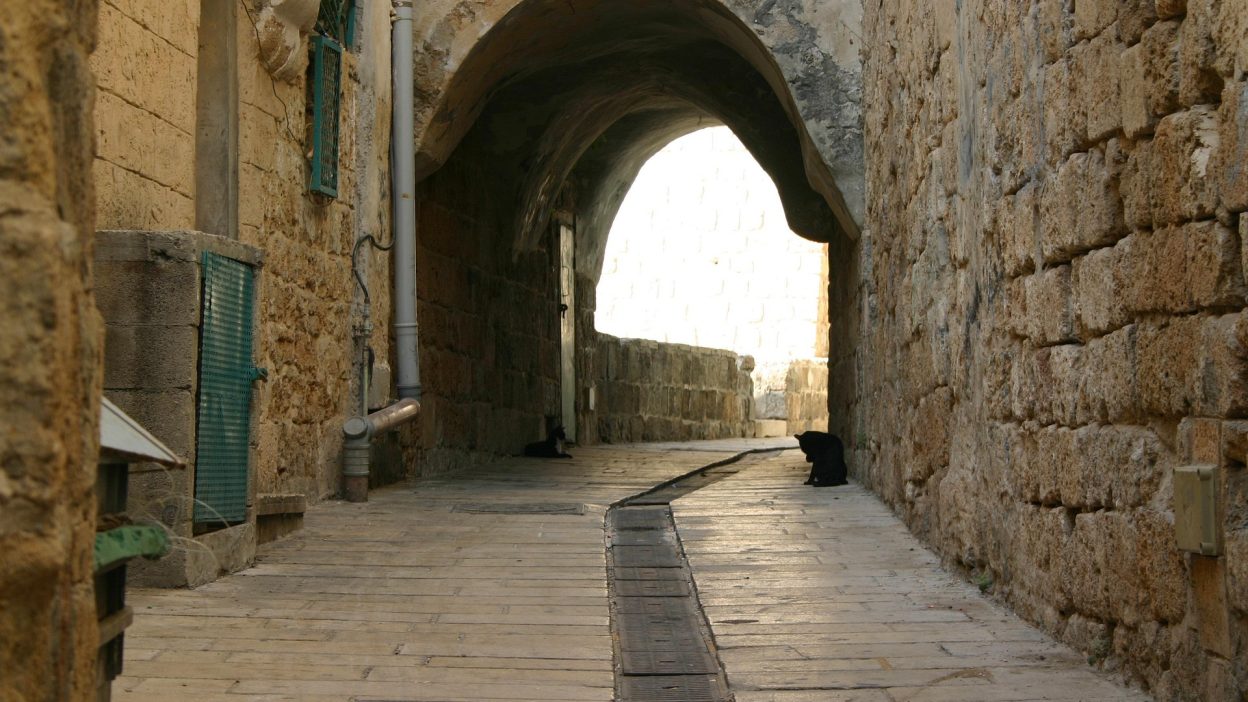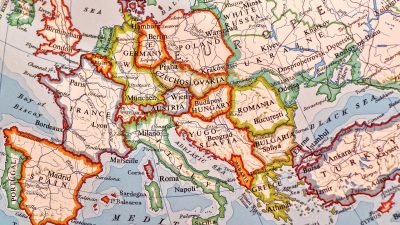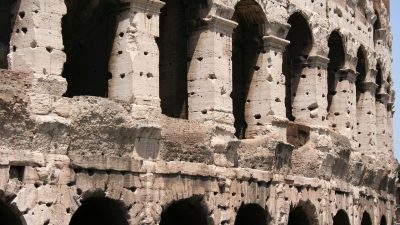The Systematic Murder of Infants
The Massacre of Israelite Children by Pharaoh remains one of the most horrific atrocities in ancient history, recorded in both the Bible (Exodus 1:22) and the Qur’an (Surah Al-Qasas 4-6). This event describes Pharaoh’s ruthless attempt to eradicate an entire generation of Israelite male infants in a desperate bid to control the growing Israelite population. His decree led to the brutal murder of thousands of newborns, leaving behind grief, terror, and despair among the enslaved Israelite people. However, one child, Moses, survived. His miraculous survival would later shape history as he became the leader who would lead the Exodus of the Israelites. The story of this massacre is not only a critical event in religious texts but also offers a glimpse into the harshness of ancient power struggles. It has deep roots in Jewish, Christian, and Islamic traditions, and its legacy continues to have an impact today.
The Israelites in Egypt: From Favor to Oppression
The Israelites initially settled in Egypt during the time of Joseph (Genesis 47:11-12), where they prospered for over 400 years. Joseph, one of the twelve sons of Jacob (Israel), had risen to power in Egypt, and his family found refuge during a famine in their homeland. Over time, the Israelite population grew rapidly, reaching hundreds of thousands, which alarmed the Egyptian rulers. Pharaoh, fearing a potential uprising or alliance with Egypt’s enemies, enslaved the Israelites and forced them into grueling labor to build cities like Pithom and Raamses (Exodus 1:11). Despite these harsh conditions, the Israelite community continued to flourish, further fueling Pharaoh’s paranoia. In response, he took extreme measures, including the decree to kill all male Israelite infants in an attempt to control their population and prevent any future threats to his reign.
Pharaoh’s Cruel Decree: The Systematic Murder of Infants
Determined to curb the growth of the Israelites, Pharaoh initially ordered the Hebrew midwives, Shiphrah and Puah, to kill all male Israelite newborns at birth (Exodus 1:15-16). However, the midwives, fearing God, defied Pharaoh’s command and allowed the babies to live. In response, Pharaoh escalated his orders, commanding that every Israelite male infant be thrown into the Nile River, a brutal attempt to stop the Israelites from growing in strength (Exodus 1:22). This decree led to the drowning or killing of thousands of babies, with Egyptian soldiers carrying out the massacre. The horrific event caused unimaginable suffering among the Israelite families, who were powerless against Pharaoh’s cruelty and oppression.
Moses: The Child Who Escaped Death
Despite Pharaoh’s decree, Jochebed, Moses’ mother, took desperate measures to save her son. She placed him in a basket coated with pitch and set him afloat on the Nile River, trusting in divine intervention (Exodus 2:3). Miraculously, Pharaoh’s own daughter, discovered the child while bathing in the river. Moved by compassion, she adopted Moses as her own, unknowingly raising the very child who would later challenge Pharaoh’s authority and lead the Israelites to freedom (Exodus 2:5-10). Moses’ survival became a symbol of hope for the oppressed Israelites and set the stage for their eventual liberation, fulfilling God’s plan to deliver them from slavery.
Source: https://www.biblegateway.com/passage/?search=Exodus+2&version=NIV
Egyptian Justifications and Policies on Population Control
Pharaoh’s decree to kill Israelite male infants was part of a broader policy to maintain control over the growing population of Israelites. The Egyptians justified their actions through fear and an attempt to preserve power. Pharaoh saw the Israelites’ growth as a threat to his rule, and this led him to view extreme measures, like infanticide, as necessary to protect Egypt. This policy was not unique, as other ancient civilizations have also resorted to population control through violent measures when threatened by internal or external forces.
Pharaoh’s Arrogance and Defiance Against Divine Warnings
Pharaoh’s pride and defiance made him reject all warnings from Moses and Aaron. He mocked their demands to release the Israelites (Exodus 5:2) and considered himself a god, immune to any consequences. This defiance set the stage for a catastrophic chain of events that would devastate Egypt.
Source: https://www.britannica.com/topic/pharaoh
The Ten Plagues: Divine Retribution Against Egypt
- WaterTurned to Blood –The Nile River and all water sources in Egypt turned to blood, causing the fish to die and making the water undrinkable (Exodus 7:14-24).
- Frogs – A mass infestation of frogs swarmed Egypt, entering homes and causing widespread discomfort (Exodus 8:1-15).
- Lice(Gnats) – The dust of the earth turned into lice or gnats, tormenting both humans and animals (Exodus 8:16-19).
- Flies – Swarms of flies filled Egypt, except in the land of Goshen where the Israelites lived (Exodus 8:20-32).
- Livestock Disease – A severe pestilence killed the Egyptian livestock, but the Israelite animals were unharmed (Exodus 9:1-7).
- Boils – Painful boils broke out on the Egyptians and their animals, causing great suffering (Exodus 9:8-12).
- Hail – A devastating hailstorm destroyed crops and livestock, and any humans or animals left outside were killed (Exodus 9:13-35).
- Locusts – Swarms of locusts devoured whatever remained of the crops, causing widespread famine (Exodus 10:1-20).
- Darkness – A thick darkness covered Egypt for three days, leaving the Egyptians unable to see each other or move (Exodus 10:21-29).
- Deathof the Firstborn – The final plague, where every firstborn in Egypt, from the Pharaoh’s son to the lowest servant, died, sparing only the Israelites who marked their doors with lamb’s blood (Exodus 11:1-12:30).
The Exodus: The Israelites’ Miraculous Escape
The Exodus is the biblical event where the Israelites were freed from slavery in Egypt, guided by Moses through divine intervention. After centuries of oppression, God sent Moses to demand their release from Pharaoh (Exodus 3:10-12). Pharaoh’s refusal led to the Ten Plagues (Exodus 7-12), culminating in the death of Egypt’s firstborn sons. Finally, Pharaoh allowed the Israelites to leave, but soon after, he pursued them with his army.
The most miraculous part of the Exodus was the crossing of the Red Sea. Trapped between Pharaoh’s army and the sea, Moses, following God’s command, parted the waters, allowing the Israelites to escape (Exodus 14:21-22). Once they crossed, the waters returned and drowned the pursuing army (Exodus 14:28).
The Israelites’ journey continued through the desert, where they faced many challenges but were provided with food and water by God (Exodus 16:4-36, Exodus 17:1-7). This journey also included the receiving of the Ten Commandments at Mount Sinai, where God established His covenant with the Israelites (Exodus 19:1-25, Exodus 20:1-17).
The Exodus is a pivotal event in Jewish, Christian, and Islamic traditions, symbolizing liberation, faith, and God’s guidance. It marked the beginning of Israel’s identity as God’s chosen people, free from oppression and bound by divine law. In Christianity, it is seen as a precursor to the spiritual freedom through Christ (1 Corinthians 10:1-2), and in Islam, it is acknowledged as a sign of God’s mercy and power (Qur’an 2:49-50, 7:103-137).
Historical Evidence and Scholarly Debates
Scholars debate the historicity of the Israelite slavery and Exodus, with some arguing that there is limited direct archaeological evidence to support the biblical account. While ancient Egyptian records from the time do not mention the massacre of Israelite children, some historians point to references to Semitic laborers and sudden societal collapses that might correlate with the biblical narrative. This lack of direct evidence has led some scholars to view the massacre as a symbolic story reflecting the oppression the Israelites faced. Others suggest that such events were common in ancient civilizations, but records were often lost or ignored by those in power. Despite the absence of concrete evidence, the story remains significant for the powerful lessons it imparts about faith, resistance, and divine intervention.
Biblical vs. Islamic Perspectives
Biblical Account (Exodus 1-14):
- Pharaoh as a Tyrant: In the Bible, Pharaoh is portrayed as a cruel leader who rejects God’s commands and oppresses the Israelites, refusing to release them despite repeated warnings.
- Moses Performs Miracles: Moses is empowered by God to perform miracles, including turning the Nile into blood and calling down plagues, to demonstrate God’s power and force Pharaoh to release the Israelites.
- Pharaoh’s Hardened Heart: Pharaoh’s heart is repeatedly hardened by God, meaning he refuses to let the Israelites go, even after witnessing the plagues, until the final plague—the death of Egypt’s firstborn—forces him to comply.
Islamic Account (Surah Al-Qasas & Surah Yunus):
- Pharaoh as an Arrogant Ruler: In the Qur’an, Pharaoh is depicted not only as a tyrant but also as an arrogant ruler who claims divinity, saying, “I am your lord, the most high” (Qur’an 79:24).
- Moses as a Prophet: Moses is sent by God as a prophet to guide both the Egyptians and the Israelites, urging Pharaoh to repent and acknowledge the one true God. Moses performs signs to support his mission.
- Pharaoh’s Repentance at Death: In the Qur’an, when Pharaoh realizes he is about to drown in the Red Sea, he tries to repent, but it is too late, and his fate is sealed, reflecting his arrogance and rejection of God’s will throughout his life.
Final Comparison:
Both faiths depict Pharaoh as an oppressor, but the Qur’an emphasizes divine justice, while the Bible highlights faith and obedience.
Lessons from Pharaoh’s Fall
Pharaoh’s tyranny and eventual downfall offer profound lessons that resonate across history and cultures. His story serves as a cautionary tale about the dangers of arrogance, unchecked power, and injustice. Pharaoh’s refusal to acknowledge the God of the Israelites and his relentless oppression of them exposed the destructive nature of absolute authority. His claim of divinity and defiance of God’s will revealed a betrayal of the moral responsibility leaders have toward their people, ultimately leading to his downfall.
Pharaoh’s fate reminds us that no ruler, no matter how powerful, is beyond accountability. Despite his earthly authority, Pharaoh could not escape divine justice, and his actions led to his destruction. His story teaches that the consequences of tyranny are inevitable, no matter how long it may last. Those who abuse power and oppress others are ultimately held accountable, whether in this life or the next. Pharaoh’s story highlights the importance of leadership grounded in fairness and responsibility.
The Exodus, born from Pharaoh’s refusal to free the Israelites, has become a universal symbol of freedom and justice. It has inspired countless movements against slavery, oppression, and tyranny, including the abolition of slavery and civil rights struggles. The story underscores the enduring pursuit of justice and freedom, reminding us that no matter how formidable the forces of oppression may be, the fight is worth waging. Pharaoh’s eventual destruction at the Red Sea illustrates that when divine justice intervenes, no earthly power can prevail, reinforcing the ultimate triumph of truth, justice, and freedom over evil and oppression.
Source: https://www.history.com/news/decline-ancient-egypt-causes
Conclusion: The Massacre That Shaped History The massacre of the Israelite children by Pharaoh is a heart-wrenching story that resonates across history and religious traditions. It exposes the darkest sides of human nature—fear, oppression, and cruelty—while also highlighting the strength, hope, and resilience of the oppressed. This tragic event serves as a powerful reminder of the importance of standing against injustice and protecting the innocent. Ultimately, it paved the way for one of the greatest stories of liberation, as the pain and suffering of thousands led to a miraculous act that changed history. Pharaoh’s arrogance was met with divine retribution, proving that oppression never goes unanswered and that faith and resistance can overcome even the greatest adversities.




